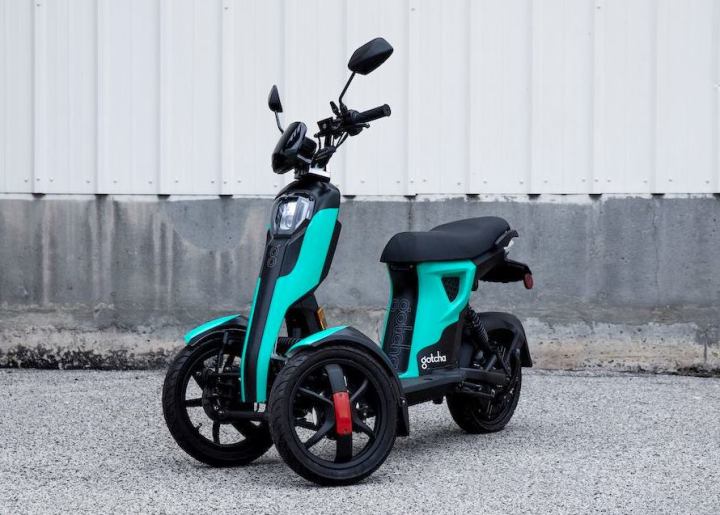
If you’re a fan of scooter and bikeshare services, then you’re going to love the idea of a fancy new transportation option that’s about to land on American streets — the electric trike.
Charleston, South Carolina-based Gotcha is incorporating the zippy little three-wheeler into its app-powered mobility platform, which beside two-wheelers also includes small electric rideshare cars.
Gotcha launched around 10 years ago and operates its service mainly on college campuses. It claims to be the first outfit of its kind to offer electric trikes, and the only shared emobility provider with four distinct products for first/last-mile transportation, all operated through a single, integrated app.
Set to arrive this spring, Gotcha’s compact trike can reach speeds of up to 25 mph and cover an impressive 40 miles on a single battery charge. As the company points out, this will allow riders to travel significantly longer distances compared to what you get with an electric bicycle or scooter.
“Gotcha’s fleet of emobility products delivers a holistic suite of vehicles that provide viable micro-transit options for our riders,” company CEO and founder Sean Flood said in a release. “We want to revolutionize the way people view shared mobility. Our etrike gives riders an alternative option that provides added stability, longer trips, and more accessibility.”
It’s Flood who has hopped onto a Gotcha trike for an epic 979-mile, publicity-generating ride through five states. Starting in Florida, Gotcha’s boss is aiming to arrive at the South by Southwest festival in Austin, Texas, on opening day on March 8. It will take him an entire week to complete the journey — because he’ll be traveling at 25 mph the whole way.
A Gotcha event at the festival on March 10 will give visitors their first proper look at its electric trike. Some lucky visitors will even be able to take it for a test ride.
Where are the trikes?
There are a bunch of reasons why trikes are yet to become a feature of more mainstream mobility services operated by the likes of Lime and Uber-owned Jump. For starters, they cost more per unit than the more basic two-wheeled alternatives. Also, the trike’s larger size means it could never be part of a dockless service and would therefore require designated parking areas, making it a less convenient option for riders looking for a nearby vehicle.
And depending on the city you’re in, you may even need a motorcycle license to ride it.
Still, Gotcha’s trike definitely has its advantages and looks like a fun ride for trips around campus — and beyond if local regulations permit — so we’ll be interested to see how it works out for the company.
On a related subject, Digital Trends recently took a look at how electric motors are helping to inject some fresh excitement into the market for three-wheeled cars.

